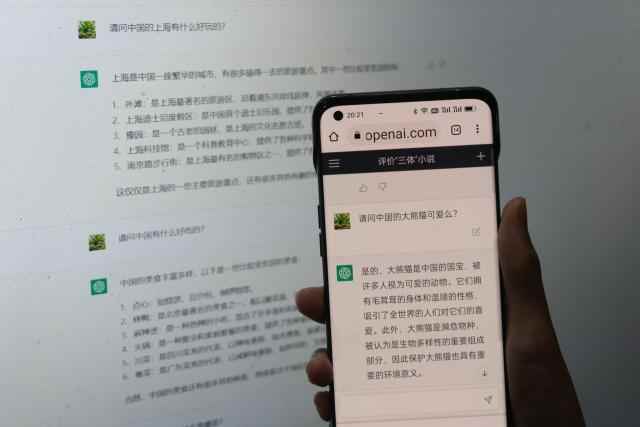China Directs Tech Companies Not to Offer Access to ChatGPT

Amid growing concern that the AI-powered ChatGPT is spreading uncensored information in China, regulators have told major Chinese tech companies not to offer access to the technology on their platforms, Nikkei Asia reports.
Microsoft-backed OpenAI’s ChatGPT is a popular artificial intelligence system that can write essays, recipes and complex computer code. It is a member of a new breed of AI models that are able to communicate and create original content by training from vast swaths of text scraped from the Internet.
China’s Censorship of Foreign Websites
Chinese users have long found ways to circumvent The Great Firewall of China, including using proxy servers or virtual private networks (VPNs). However, these techniques are increasingly being repressed by authorities.
The government censors all content in the country, including social media posts and news stories. It also uses libel lawsuits and arrests to punish people who criticize the government.
Censorship is conducted through a network of Cyberspace Affairs Commissions, Public Security Bureaus, and content reviewers hired by technology companies to filter and remove censored material. These firms typically employ thousands of content moderators who look for code words, slang and memes that help the public to get around censorship filters.
In the past, many of these agencies reported to Propaganda Departments, but in recent years, censorship has been consolidated into a system subordinated to the Communist Party’s Central Propaganda Department. This has helped to ensure that a majority of the Chinese government’s censorship agenda is pushed through online regulation, and Xi Jinping’s rule has made this task even more important.
Tencent’s WeChat
Tencent’s WeChat is a multi-purpose app that connects more than a billion people. It is used for messaging, paying bills, ordering transport, running small businesses and more.
The company also owns chunks of some of the world’s most popular games, music and movies. It is considered to be China’s Facebook.
WeChat is known for being a scrappy, competitive, feature-focused, and culturally responsive product. It’s been built to answer the needs of a massive population that’s not necessarily used to using a smartphone or digital tools.
It has been built with a relentless focus on creating something that’s simple enough to extend into the hands of every single person in China, regardless of their age.
WeChat defies the standard thinking about growth – it’s not all about increasing user numbers, but instead about the value that users get from using the app. This means building features that encourage efficiency – so the product enables you to do something quickly and efficiently, which allows you to move on to other things.
Alibaba’s WeChat
WeChat, the Chinese messaging app with over a billion users, has become an integral part of life in China. It’s used to hail a ride, buy groceries, book a doctor’s appointment and more.
It also helps Chinese users interact with local businesses and find new friends. And it’s becoming an increasingly important identity verification tool for the Chinese government.
But it’s gotten into a bit of trouble as Chinese regulators have pushed tech companies to stop blocking links to rival services and content. In recent months, the Ministry of Industry and Information Technology has instructed some of China’s biggest Internet firms, including Alibaba and Tencent, to drop this practice.
As a result, Tencent is now allowing one-on-one WeChat chats to include links to external apps like Taobao deals or the popular e-commerce platform Pinduoduo. The move comes as China continues to tighten anti-monopoly rules in the internet sector, and is a sign that it may be willing to open up its ecosystem.
Google’s Bard
According to a report from Nikkei Asia, Chinese regulators have told tech companies not to offer access to ChatGPT, which was developed by US-based OpenAI. It is a popular discussion bot that answers questions about topics like human rights violations in China’s Xinjiang region.
Despite these restrictions, some Chinese residents have accessed the service via VPNs or third-party programs. It is reportedly attracting widespread interest in the country, and firms are increasingly using its models to develop chatbots to answer users’ queries.
Google recently unveiled Bard, a chatbot that will compete with OpenAI’s ChatGPT. It uses a language model called LaMDA to generate responses, and collects information from the web as well.
But Bard is still in a testing phase, and has been limited to only generating a few queries. It will use external feedback and its own internal testing to ensure it meets a high bar for quality, safety and groundedness in real-world information.
